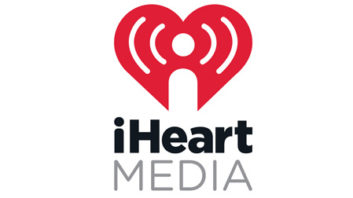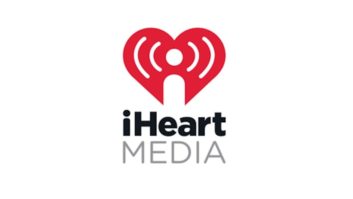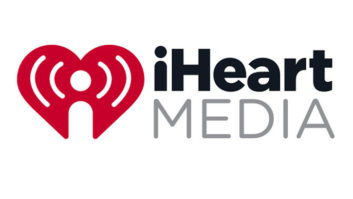 Earnings reports from major radio broadcast groups this week show the damage to the bottom line caused by the COVID-19 pandemic is easing a bit as the economy recovers and advertisers return.
Earnings reports from major radio broadcast groups this week show the damage to the bottom line caused by the COVID-19 pandemic is easing a bit as the economy recovers and advertisers return.
iHeartMedia in its financial report on Thursday said consolidated revenue clocked in at $707 million for the first quarter of 2021, which is better than it expected but still down 9.5% compared to Q1 of 2020. Take out political and revenue dipped 7.2% in the quarter, according to the broadcasters filing with the U.S. Securities and Exchange Commission.
Those numbers appear to be a little better than several of iHeartMedia’s major competitors. Audacy (formerly Entercom) said today its net revenues for the first quarter were $240.8 million, which is down 19% year-over-year. Audacy’s broadcast radio revenue was down approximately 24% in the quarter. Meanwhile, Cumulus reported overall revenues declined 11.5% in the first quarter of this year, but its radio revenue declined 23.8% compared to Q1 last year.
[Read: iHeart Launches “Private Marketplace” for Podcasts]
iHeart Media recently realigned its reporting segments and for the first time broke out three specific sectors of its business on its first quarter balance sheet. The company’s Multiplatform Group, which includes its 860 broadcast radio stations and Premiere Networks, reported Q1 revenue was down 20.9% compared to the same quarter in 2021. Specifically, broadcast revenue was down 22.3% year-over-year while network revenue declined 6% YoY, according to the company.
The largest radio broadcaster in the United States said operating expenses for the Multiplatform Group decreased 17.8% in Q1 compared to the same period in 2020 primarily due to lower employee compensation and other cost-reduction initiatives in response to the COVID-19 pandemic. That included staffing cuts in iHeartMedia’s engineering department earlier this year. Observers at the time noted the company appears to be relying on a more regional approach to engineering staffing.
The iHeartMedia Digital Audio Group, which includes all digital assets like podcasting, grew revenue by 69.8% year-over-year. iHeartMedia says the digital audio business encompasses approximately 22% of the company’s consolidated revenue. The sector was led by continued growth in podcasting, which increased by 141.9% YoY, according to the investor report.
iHeartMedia Chairman and CEO Bob Pittman said during Thursday’s call the Digital Audio Group is “well on its way to becoming our most profitable segment.”
Meanwhile, the company’s Audio and Media Services Group, which includes Katz Media Group and RCS, saw revenue decrease 8.5% comparative to the same quarter last year. Katz specifically was hard hit in Q1as a result of the presidential election in the year prior. Excluding the impact of political, revenues in the sector were actually up 0.7%, according to the company’s balance sheet.
Pittman told investors the company continues to recover from the impact of the COVID-19 pandemic and expects to see a full recovery to 2019 levels by the end of this year.
Watchers of iHeartMedia stock saw positive signs in the past month when a bullish analyst report raised its rating on the audio company. BofA Securities media analyst Jessica Reif Ehrlich bumped her rating up to Buy from Underperform. The company’s stock price immediately jumped about 13% and has held relatively steady since mid-April. It opened Friday at $19.86. The stock returned to the public markets in July 2019 following its emergence from bankruptcy.
Despite the positive stock news the audio company is still loaded down with debt, according to its SEC report. iHeartMedia had total debt of just over $6 billion at the end of March. iHeartMedia President and COO Rich Bressler said Thursday the company’s “interest expense will be approximately $335 million to $345 million” for 2021.
Bressler also discussed cap-ex spending by the broadcast giant: “Due to the significant real estate reductions we are working on to drive meaningful savings, our capital expenditures in 2021 will be $165 million to $185 million and then return to normal levels in 2022. Due to the timing of the real estate consolidation, capital expenditures will be heavily weighted to the second half of (2021).”
You could pardon iHeartMedia executives if they wanted to present investors the abridged version of the company’s Q1 results on Thursday and quickly move on to discuss their projections for the second quarter. The company says April 2021 revenues were up approximately 85% year over year. Keep in mind the company says that April 2020 was the month hardest hit by COVID. Company leadership expects second quarter revenues overall this year to be up around 65% YoY.
iHeartMedia also completed its acquisition of Triton Digital, a digital audio publishing, advertising and audience measurement business, during the first quarter. The company says the move will help tie together its various lines in the digital infrastructure space.






